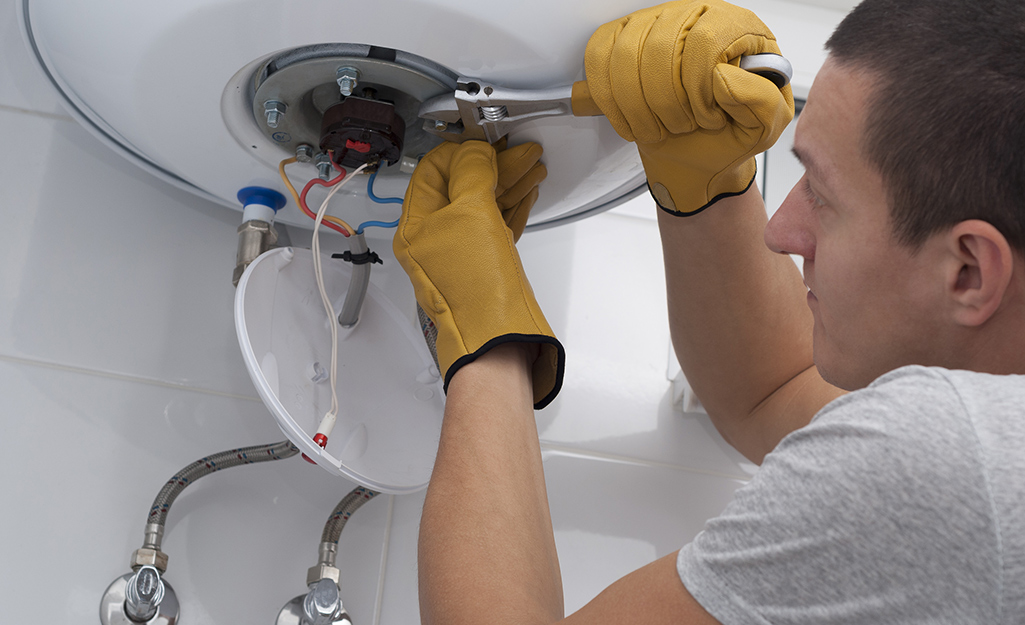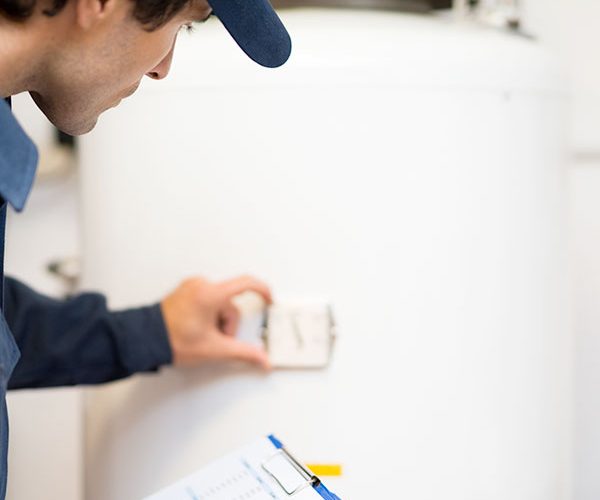Do you find yourself on the lookout for guidance on Common Hot Water Heater Problems?

A hot water heater is among the most important standard devices that can be located in a home. With hot water heater, you do not need to undergo the stress and anxiety of heating water manually every time there is a need to wash, wash, or the recipes. There is always an opportunity that your water heating system would certainly act up as with a lot of mechanical gadgets.
It is essential to note any kind of little malfunction as well as tackle it promptly before points leave hand. Most times, your water heater begins to malfunction when there is a build-up of debris as a result of continuous use. As a safety measure, routine flushing of your water heater is suggested to avoid debris buildup and avoid useful failing.
Usual water heater emergencies and how to handle them
Dripping hot water heater tank.
A dripping storage tank could be an indication of corrosion. It might trigger damage to the flooring, wall surface and electrical tools around it. You might also be at threat of having your home swamped. In this scenario, you should turn off your hot water heater, enable it to cool off, and thoroughly search for the resource of the issue. At times, all you need to do is to tighten a few screws or pipeline links in cases of minor leaks. If this does not work and also the leakage persists, you might need to utilize the solutions of a service technician for a proper substitute.
Changing water temperature.
Your hot water heater could start producing water of various temperatures normally ice hot or cold warm. In this scenario, the first thing you do is to guarantee that the temperature is set to the desired degree. If after doing this, the water temperature maintains transforming throughout showers or various other tasks, you might have a damaged thermostat. There may be a need to change either the heating or the thermostat device of your hot water heater.
Insufficient warm water
Managing an insufficient supply of hot water can be frustrating. It may be that the water heater can not sustain the warm water need for your home. To manage this trouble, you can try to change your heating system's temperature dial and also await a few mins. If the trouble persists, you can request for the help of an expert plumber. Conversely, you might update your hot water heater to one with a bigger capacity.
Tarnished or stinky water
You require to understand if the problem is from the water or the storage tank resource when this happens. You are specific that it is your water heater that is faulty if there is no amusing scent when you run chilly water. The smelly water can be triggered by corrosion or the buildup of microorganisms or debris in the hot water heater container. As soon as you notice this, you can try flushing out your tank or changing the anode if the trouble lingers. The feature of the anode is to clean microorganisms from your tank. Since the anode rod substitute calls for a thorough expertise of your water furnace, you will certainly need the assistance of an expert.
Verdict
Some property owners neglect little caution and also minor faults in their hot water heater device. This just brings about more damages and also a feasible full failure of your device. You need to take care of your water heater mistakes as quickly as they come near prevent more expenditures and also unneeded emergency troubles.
With water heating units, you don't require to go via the anxiety of heating water by hand every time there is a requirement to take a bath, do the washing, or the dishes. Your water heating unit could begin producing water of various temperature levels normally ice chilly or scalding warm. It may be that the water heater can not sustain the hot water demand for your apartment. If there is no amusing odor when you run chilly water, then you are certain that it is your water heater that is damaged. The odiferous water can be triggered by corrosion or the accumulation of bacteria or debris in the water heater container.
Why Is My Water Heater Leaking?
When a water heater bursts in a home, it is a shocking event, not to mention a messy one, and it could potentially cause a lot of expensive damage. If your hot water heater burst, you’re probably wondering why this happens and what to do next.
In general, the basic reason why hot water heaters burst is that there is corrosion within the tank, which can lead to the tank bursting at its seams. Unfortunately, there are several possible underlying causes that can contribute to water heater explosions, and it’s not always apparent which one is the culprit.
Sometimes there are risk factors or warning signs that could indicate a water heater explosion is imminent, but not always. In order to understand the risk factors that could contribute to a water heater exploding, it’s important first to understand the type of water heater that you have in your home.
What Are The Common Causes of Water Heater Leaks?
In general, it's a good idea to call a emergency plumbing company if you have any questions about the cause of your water heater leak. The most frequent reasons why water heaters leak are:
Drain valve
The drain valve is used to empty the tank during maintenance visits and replacements by plumbers and homeowners. The drain valve is also utilized by homeowners when cleaning the tank is required. Over time, the valve becomes loose, allowing water to flow through. Leaks from the bottom of the valve, on the other hand, suggest that the component isn't waterproof. This situation calls for the installation of a new drain valve. Homeowners may replace this themselves, but it's better to get advice from a professional plumber before you do so.
Too much pressure
Water heaters are affected by naturally occurring water pressure, just like any other plumbing component. The hot water that generates steam and fills the vacant space causes pressure in water heaters. When the steam has no where to go, the pressure becomes too high. Any crack in the heater allows water to escape, relieving some of the pressure. When the water temperature is set too high or when water enters the system at large pressures, the heater's pressure rises.

I am very fascinated with Is Your Water Heater Leaking? and I hope you enjoyed reading my article. If you enjoyed our page plz do not forget to pass it around. Thanks so much for your time spent reading it.
Preventative solutions offered.